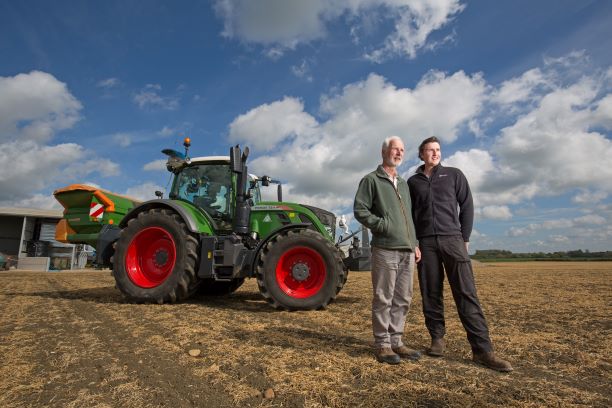Monitor farmers enjoying smooth harvest despite disappointing rapeseed yields
Wednesday, 11 September 2019
Harvest is going well for Vale of Belvoir monitor farmers James and Michael Parker, despite the wet weather experienced over August.
Yields of winter barley, winter wheat and spring barley are promising at 10, 10.7 and 8.2 tonnes per hectare (t/ha) respectively, with particularly high yields where black-grass populations were low. The spring barley yield was the best yield achieved so far. James also recorded his highest ever yield for winter beans: 7.2 t/ha.
The pair have begun on the winter linseed and - at just under 3 t/ha - are very pleased with the results so far. This is the second year they’ve grown the crop following a disappointing first year, during which late drilling meant the crop failed to get up and away properly. James put the success this year down to a higher seed rate this year (90kilos p/ha) and is planning to grow it during the new season.
It wasn’t all good news however, James explained that the rapeseed yield was considerably down this year: at 2.7 t/ha this is half what they’ve managed in previous years. He explained that the crop failed to grow to its full advantage and was 12 inches lower than previous years.
Similarly disappointing was grain quality, with lower Hagberg and Thousand Grain Weight following the rain experienced over summer. James expects most of the wheat crop to go for animal feed.
James said: “We’re really pleased with how the harvest has gone this year. Although it was a bit of a slow start, we’ve had a good few weeks of dry weather which allowed us to catch up”.
James’s son Michael said: “This year was a relatively easy harvest. I put this down to the land being in good condition: we’ve managed it well and once the early rain drained away we’ve had good conditions. If the weather continues we expect the rest of the cultivations and drilling to go smoothly”
Looking ahead the pair have recently upgraded their combine to allow for a semi-controlled traffic system. The new equipment features improved yield mapping capabilities which, together with their soil maps and biomass measuring, allows them to create variable seed or fertiliser maps by overlaying the different maps on top of each other. The new combine also comes with extra capacity: able to hold two tonnes more grain while having larger tyres reducing the amount of ground pressure compared with their previous machine.
Later this year James and Michael will try their hand at direct drilling in November. If successful this should allow for reduced disturbance drilling, providing them with another tool to tackle blackgrass and the potential for further cost reductions in the future.
Having launched earlier this year, James and Michael will resume hosting the Vale of Belvoir Monitor Farm meetings in the autumn, with the first taking place on 14 November. You can book your place via the event page on the AHDB website.


